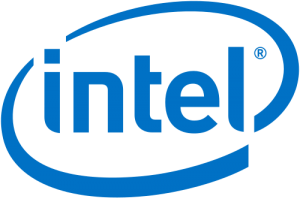|
Managing BSD systems with Ansible |
|---|
| Description: The tutorial was first held at AsiaBSDcon and it was well attended (14 people) and received. The feedback I got in the meantime has been worked into the tutorial, so that attendees will get the updated and revised version. The tutorial is laid out for 2.5 – 3 hours with breaks in between and enough time for attendees to try out the examples on their own machines. The topic is interesting enough even for people who did not have much exposure to the BSDs yet and covers all the BSDs in general as Ansible mostly abstracts the OS-specifics away. Basic Unix command line skills (editing a file, navigating the directory tree, copying files, etc.) is sufficient to participate. I will start the tutorial with why and how Ansible is helpful (infrastructure as code). Then, I will go into setting up clients (receiving updates) and server (pushing configuration changes to clients) with SSH. We will then start running basic ad-hoc commands from the command line so that attendees get a feel for the power of this tool. Next, attendees will learn how to run and write playbooks for bigger tasks comprising multiple steps to execute on the target host. Variables, loops, gathering facts from clients, as well as the basics of YAML are part of the tutorial, which concludes with a complete example about setting up and configuring a webserver. Sysadmins and users alike can benefit from the tutorial by learning how to automate dull, repetitive tasks and deploy configuration changes in parallel. |
| Speaker biography: Benedict Reuschling joined the FreeBSD Project in 2009. After receiving his full documentation commit bit in 2010, he actively began mentoring other people to become FreeBSD committers over the years. He is proctor for the BSD Certification Group. Benedict has a Master of Science degree in Computer Science and is teaching a UNIX for software developers class at the University of Applied Sciences, Darmstadt, Germany. He is managing the Big Data cluster for the computer science department using Ansible since mid 2014. Benedict joined the FreeBSD Foundation Board of Directors in 2015 and is currently serving as vice president. |
|
DTrace for Developers: no more printfs |
| Description: One of the largest challenges to building complex software is a lack of run time visibility into what the system is doing at any particular time. Typical approaches to adding tracing and logging emphasize sprinkling calls to printf() or similar statements throughout the source code, and enabling these in debug builds. DTrace is a modern system that gives software developers the ability to add, low overhead tracing that is always available, coupled with an advanced scripting language, to programs that they are creating, modifying and debugging. In this tutorial we will cover the basics of DTrace, including basic and advanced uses, and then, using a set of worked examples, add tracing to user space and kernel space systems. The tutorial includes a set of short labs, carried out on virtual machines, that give the students hands on experience working with DTrace. Students are expected to have a laptop computer which can run Virtual Machine software such as VMWare (preferred), Virtual Box or QEMU. |
| Speaker biography: George Neville-Neil works on networking and operating system code for fun and profit. He also teaches various courses on subjects related to computer programming. His professional areas of interest include code spelunking, operating systems, networking, time and security. He is the co-author with Marshall Kirk McKusick and Robert Watson of The Design and Implementation of the FreeBSD Operating System and is the columnist behind ACM Queue’s “Kode Vicious.” Mr. Neville-Neil earned his bachelor’s degree in computer science at Northeastern University in Boston, Massachusetts, and is a member of the ACM, the Usenix Association, the IEEE, and is one of the Directors of the FreeBSD Foundation. He is an avid bicyclist and traveler who currently resides in New York City. |
|
An Introduction to the FreeBSD Open-Source Operating System |
| Description: An Introduction to the FreeBSD Open-Source Operating System Dr. Marshall Kirk McKusick Who Should Take this Course This course provides a broad overview of how the FreeBSD kernel FreeBSD kernel but subjects have been arranged such that students can also decide to attend only the first or the second day depending on the subjects in which they are interested. Description This course will provide a firm background in the FreeBSD kernel.
Course Text Marshall Kirk McKusick, George Neville-Neil, and Robert N. M. Watson, |
| Speaker biography: Dr. Marshall Kirk McKusick writes books and articles, teaches classes on UNIX- and BSD-related subjects, and provides expert-witness testimony on software patent, trade secret, and copyright issues particularly those related to operating systems and filesystems. He has been a developer and commiter to the FreeBSD Project since its founding in 1994. While at the University of California at Berkeley, he implemented the 4.2BSD fast filesystem and was the Research Computer Scientist at the Berkeley Computer Systems Research Group (CSRG) overseeing the development and release of 4.3BSD and 4.4BSD. He earned his undergraduate degree in electrical engineering from Cornell University and did his graduate work at the University of California at Berkeley, where he received master’s degrees in computer science and business administration and a doctoral degree in computer science. He has twice been president of the board of the Usenix Association, is currently a member of the FreeBSD Foundation Board of Directors, a member of the editorial board of ACM’s Queue magazine, a senior member of the IEEE, and a member of the Usenix Association, ACM, and AAAS. In his spare time, he enjoys swimming, scuba diving, and wine collecting. The wine is stored in a specially constructed wine cellar (accessible from the Web at http://www.mckusick.com/~mckusick/) in the basement of the house that he shares with Eric Allman, his partner of 38-and-some-odd years and husband since 2013. |
|
Core concepts of ZFS |
| Description: This half-day tutorial walks through the core concepts of ZFS. We’ll discuss real life ZFS deployments, and troubleshoot bottlenecks. Topics include:
and whatever other topics we have time for, which we probably won’t. |
| Speaker biography: Michael W Lucas is the author of many technical books, including “Absolute FreeBSD,” “Absolute OpenBSD,” “PAM Mastery,” and the brand-new “Relayd and Httpd Mastery.” He lives in Detroit, Michigan, with his wife and an assortment of rats. Learn more at https://www.mwl.io. |
|
BGP for developers and sysadmins |
| Description: BGP is becoming more and more relevant outside of pure networking. Developers need to understand TCP/IP for their own projects, micro-services use networking for performance and redundancy. Virtual Machines move from host to host, and need to have network traffic delivered to them. BGP is the backbone protocol of the Internet, and as a Data Center networking protocol for Facebook, Google, and Microsoft. I will teach you the relevant basics of networking and how BGP is used in the wild. At my day job, I run the 4th most connected network in Germany, and are a developer with OpenBSD focusing on networking and OpenBGPD. Attendees must bring a laptop capable of connecting to ethernet, and running bird/openbgpd. Please pre-install the packages “sipcalc”, “bird”. Knowledge of subnets or routing is not required. |
| Speaker biography: Peter Hessler has been a developer with the OpenBSD project since 2008. Originally from San Francisco he has an interest in how things work. An OpenBSD user since 2000, he moved to Germany in 2008, to Switzerland in 2013, then back to Germany in 2015. In his spare time Peter enjoys drinking beer, filling out Immigration documentation, and bad puns. |
|
How to untangle your threads from a giant lock in a multiprocessor system |
| Description: You’ve been living under a giant lock your whole life, but Moore’s law has been moving in parallel rather than serial now for over a decade, and it’s time to make your code scale to many cores. How? Your undergrad professor told you all about philosophers fighting over dinner forks, which seems only philosophically relevant when you stare at inscrutable kernel memory corruption. In this tutorial, you’ll work through examples of drivers and kernel subsystems in the context of NetBSD — though the concepts will generalize to other BSDs, to userland, etc. — of designing them to be MP-safe or even MP-scalable. |
| Speaker biography: Taylor `Riastradh’ Campbell has been a NetBSD developer since 2011. His first major contribution was to fix the synchronization of the rename system call, which has to juggle four different objects, any pair of which might be the same, and guarantee a local operation does not violate global invariants of the file system. Since then, he has been tweaking lock orders and synchronization protocols, including writing passive references for cheaply parallelizing read-mostly access to shared resources in the network stack. |




